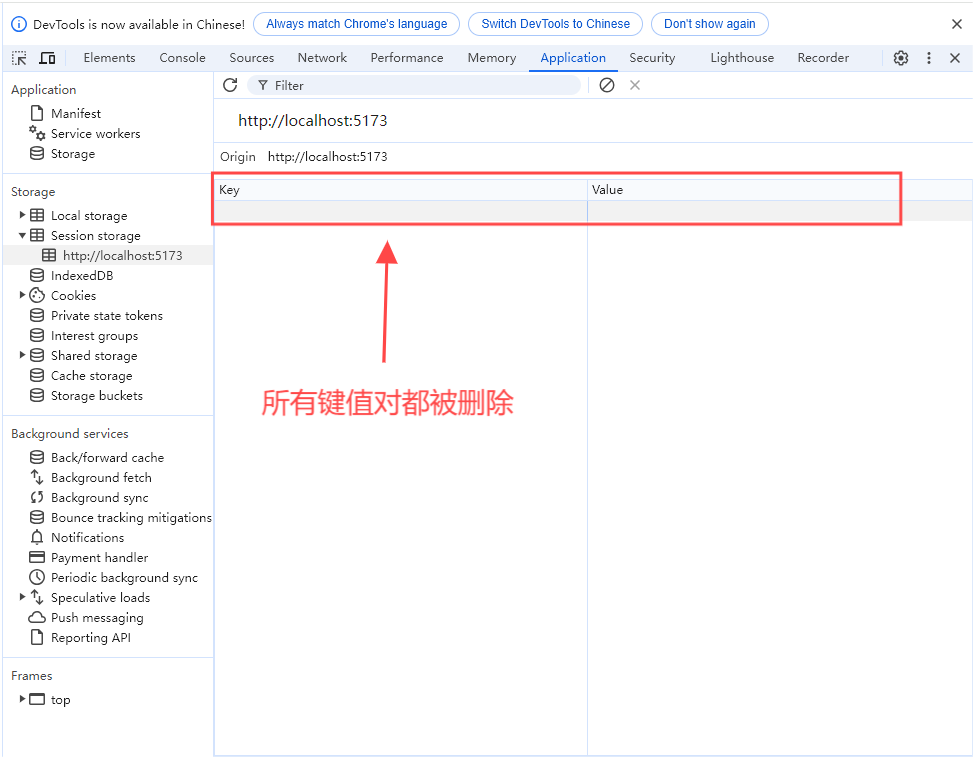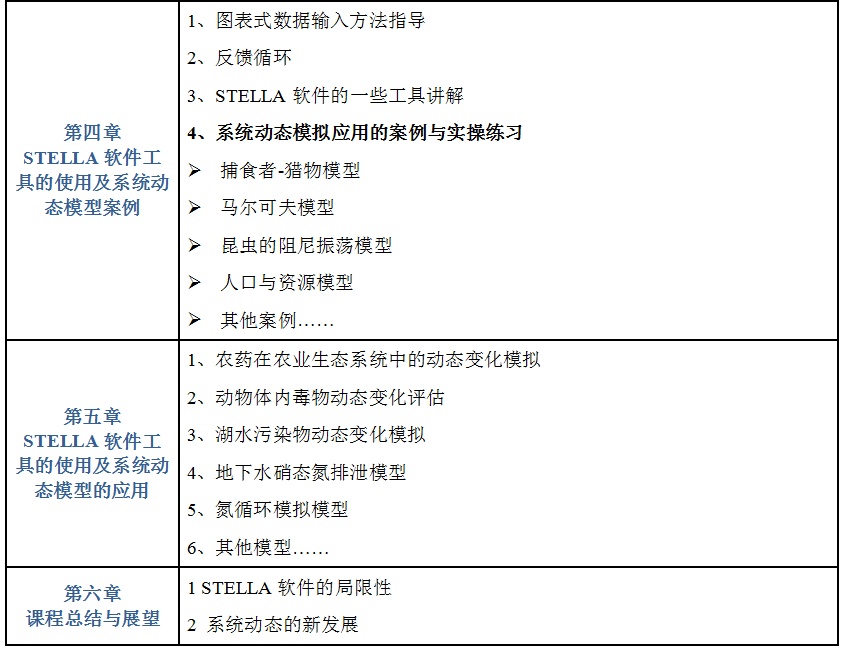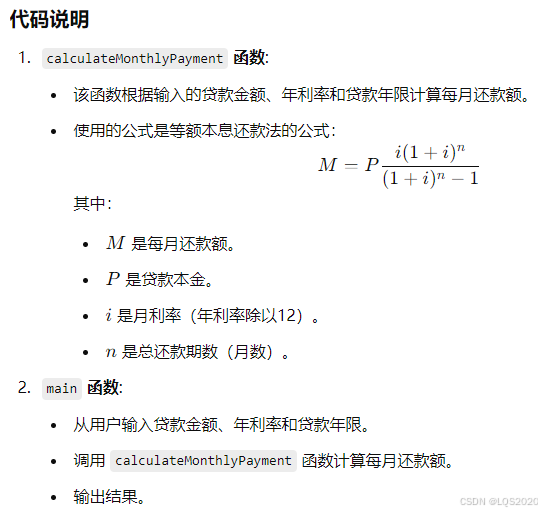问题描述
Error while running command nessus_scan_new: undefined method `[]’ for nil:NilClass

解决方法
发现报错,经过网上查询解决方法

在Nessus服务器执行,下面的版本号可能有所不同,更加自己的情况更改,需要管理员身份执行。
curl "https://raw.githubusercontent.com/QKaiser/nessus_rest-ruby/nessus-protected-api-support/lib/nessus_rest.rb" > /usr/share/metasploit-framework/vendor/bundle/ruby/版本号/gems/nessus_rest-0.1.6/lib/nessus_rest.rb
可能会遇到打不开的情况下,这个时候可以用一台能打开网址的电脑,将内容复制下来粘贴到一个文本文档中,然后将名称命名为nessus_rest.rbNessus服务器中的文件替换掉(建议将原文件改名,然后再将新建的文件放入目标文件夹中即可,以免有问题可以改回来)
https://raw.githubusercontent.com/QKaiser/nessus_rest-ruby/nessus-protected-api-support/lib/nessus_rest.rb
Ps:遇到打不开的童鞋,我把打开的内容贴在文章的最后方便大家直接复制。
然后退出msfconsole,在重新进入msfconsole,加载nessus
exit
msfconsole
load nessus
这个时候发现问题已经解决,能正常执行nessus_scan_new命令

nessus_rest.rb内容
#!/usr/bin/env ruby
# coding: utf-8
# = nessus_rest.rb: communicate with Nessus(6+) over JSON REST interface
#
# Author:: Vlatko Kosturjak
#
# (C) Vlatko Kosturjak, Kost. Distributed under MIT license.
#
# == What is this library?
#
# This library is used for communication with Nessus over JSON REST interface.
# You can start, stop, pause and resume scan. Watch progress and status of scan,
# download report, etc.
#
# == Requirements
#
# Required libraries are standard Ruby libraries: uri, net/https and json.
#
# == Usage:
#
# require 'nessus_rest'
#
# n=NessusREST::Client.new ({:url=>'https://localhost:8834', :username=>'user', :password=> 'password'})
# qs=n.scan_quick_template('basic','name-of-scan','localhost')
# scanid=qs['scan']['id']
# n.scan_wait4finish(scanid)
# n.report_download_file(scanid,'csv','myscanreport.csv')
#
require 'openssl'
require 'uri'
require 'net/http'
require 'net/https'
require 'json'
# NessusREST module - for all stuff regarding Nessus REST JSON
#
module NessusREST
# Client class implementation of Nessus (6+) JSON REST protocol.
# Class which uses standard JSON lib to parse nessus JSON REST replies.
#
# == Typical Usage:
#
# require 'nessus_rest'
#
# n=NessusREST::Client.new ({:url=>'https://localhost:8834', :username=>'user', :password=> 'password'})
# qs=n.scan_quick_template('basic','name-of-scan','localhost')
# scanid=qs['scan']['id']
# n.scan_wait4finish(scanid)
# n.report_download_file(scanid,'csv','myscanreport.csv')
#
class Client
attr_accessor :quick_defaults
attr_accessor :defsleep, :httpsleep, :httpretry, :ssl_use, :ssl_verify, :autologin
attr_reader :x_cookie
class << self
@connection
@token
end
# initialize quick scan defaults: these will be used when not specifying defaults
#
# Usage:
#
# n.init_quick_defaults()
def init_quick_defaults
@quick_defaults=Hash.new
@quick_defaults['enabled']=false
@quick_defaults['launch']='ONETIME'
@quick_defaults['launch_now']=true
@quick_defaults['description']='Created with nessus_rest'
end
# initialize object: try to connect to Nessus Scanner using URL, user and password
# (or any other defaults)
#
# Usage:
#
# n=NessusREST::Client.new (:url=>'https://localhost:8834', :username=>'user', :password=> 'password')
def initialize(params={})
# defaults
@nessusurl = params.fetch(:url,'https://127.0.0.1:8834/')
@username = params.fetch(:username,'nessus')
@password = params.fetch(:password,'nessus')
@ssl_verify = params.fetch(:ssl_verify,false)
@ssl_use = params.fetch(:ssl_use,true)
@autologin = params.fetch(:autologin, true)
@defsleep = params.fetch(:defsleep, 1)
@httpretry = params.fetch(:httpretry, 3)
@httpsleep = params.fetch(:httpsleep, 1)
init_quick_defaults()
uri = URI.parse(@nessusurl)
@connection = Net::HTTP.new(uri.host, uri.port)
@connection.use_ssl = @ssl_use
if @ssl_verify
@connection.verify_mode = OpenSSL::SSL::VERIFY_PEER
else
@connection.verify_mode = OpenSSL::SSL::VERIFY_NONE
end
yield @connection if block_given?
authenticate(@username, @password) if @autologin
end
# Tries to authenticate to the Nessus REST JSON interface
#
# returns: true if logged in, false if not
#
# Usage:
#
# n=NessusREST::Client.new (:url=>'https://localhost:8834', :autologin=>false)
# if n.authenticate('user','pass')
# puts "Logged in"
# else
# puts "Error"
# end
def authenticate(username, password)
@username = username
@password = password
authdefault
end
alias_method :login, :authenticate
# Tries to authenticate to the Nessus REST JSON interface
#
# returns: true if logged in, false if not
#
# Usage:
#
# n=NessusREST::Client.new (:url=>'https://localhost:8834', :autologin=>false,
# :username=>'nessususer', :password=>'nessuspassword')
# if n.authdefault
# puts "Logged in"
# else
# puts "Error"
# end
def authdefault
payload = {
:username => @username,
:password => @password,
:json => 1,
:authenticationmethod => true
}
res = http_post(:uri=>"/session", :data=>payload)
if res['token']
@token = "token=#{res['token']}"
# Starting from Nessus 7.x, Tenable protects some endpoints with a custom header
# so that they can only be called from the user interface (supposedly).
res = http_get({:uri=>"/nessus6.js", :raw_content=> true})
@api_token = res.scan(/([a-fA-F0-9]{8}-[a-fA-F0-9]{4}-[a-fA-F0-9]{4}-[a-fA-F0-9]{4}-[a-fA-F0-9]{12})/).first.last
@x_cookie = {'X-Cookie'=>@token, 'X-API-Token'=> @api_token}
return true
else
false
end
end
# checks if we're logged in correctly
#
# returns: true if logged in, false if not
#
# Usage:
#
# n=NessusREST::Client.new (:url=>'https://localhost:8834', :username=>'user', :password=> 'password')
# if n.authenticated
# puts "Logged in"
# else
# puts "Error"
# end
def authenticated
if (@token && @token.include?('token='))
return true
else
return false
end
end
# try to get server properties
#
# returns: JSON parsed object with server properties
#
# Usage:
#
# n=NessusREST::Client.new (:url=>'https://localhost:8834', :username=>'user', :password=> 'password')
# pp n.get_server_properties
def get_server_properties
http_get(:uri=>"/server/properties", :fields=>x_cookie)
end
alias_method :server_properties, :get_server_properties
# Add user to server
#
# returns: JSON parsed object
#
# Usage:
#
# n=NessusREST::Client.new (:url=>'https://localhost:8834', :username=>'user', :password=> 'password')
# pp n.user_add('user','password','16','local')
#
# Reference:
# https://localhost:8834/api#/resources/users/create
def user_add(username, password, permissions, type)
payload = {
:username => username,
:password => password,
:permissions => permissions,
:type => type,
:json => 1
}
http_post(:uri=>"/users", :fields=>x_cookie, :data=>payload)
end
# delete user with user_id
#
# returns: result code
#
# Usage:
#
# n=NessusREST::Client.new (:url=>'https://localhost:8834', :username=>'user', :password=> 'password')
# puts n.user_delete(1)
def user_delete(user_id)
res = http_delete(:uri=>"/users/#{user_id}", :fields=>x_cookie)
return res.code
end
# change password for user_id
#
# returns: result code
#
# Usage:
#
# n=NessusREST::Client.new (:url=>'https://localhost:8834', :username=>'user', :password=> 'password')
# puts n.user_chpasswd(1,'newPassword')
def user_chpasswd(user_id, password)
payload = {
:password => password,
:json => 1
}
res = http_put(:uri=>"/users/#{user_id}/chpasswd", :data=>payload, :fields=>x_cookie)
return res.code
end
# logout from the server
#
# returns: result code
#
# Usage:
#
# n=NessusREST::Client.new (:url=>'https://localhost:8834', :username=>'user', :password=> 'password')
# puts n.user_logout
def user_logout
res = http_delete(:uri=>"/session", :fields=>x_cookie)
return res.code
end
alias_method :logout, :user_logout
# Get List of Policies
#
# returns: JSON parsed object with list of policies
#
# Usage:
#
# n=NessusREST::Client.new (:url=>'https://localhost:8834', :username=>'user', :password=> 'password')
# pp n.list_policies
def list_policies
http_get(:uri=>"/policies", :fields=>x_cookie)
end
# Get List of Users
#
# returns: JSON parsed object with list of users
#
# Usage:
#
# n=NessusREST::Client.new (:url=>'https://localhost:8834', :username=>'user', :password=> 'password')
# pp n.list_users
def list_users
http_get(:uri=>"/users", :fields=>x_cookie)
end
# Get List of Folders
#
# returns: JSON parsed object with list of folders
#
# Usage:
#
# n=NessusREST::Client.new (:url=>'https://localhost:8834', :username=>'user', :password=> 'password')
# pp n.list_folders
def list_folders
http_get(:uri=>"/folders", :fields=>x_cookie)
end
# Get List of Scanners
#
# returns: JSON parsed object with list of scanners
#
# Usage:
#
# n=NessusREST::Client.new (:url=>'https://localhost:8834', :username=>'user', :password=> 'password')
# pp n.list_scanners
def list_scanners
http_get(:uri=>"/scanners", :fields=>x_cookie)
end
# Get List of Families
#
# returns: JSON parsed object with list of families
#
# Usage:
#
# n=NessusREST::Client.new (:url=>'https://localhost:8834', :username=>'user', :password=> 'password')
# pp n.list_families
def list_families
http_get(:uri=>"/plugins/families", :fields=>x_cookie)
end
# Get List of Plugins
#
# returns: JSON parsed object with list of plugins
#
# Usage:
#
# n=NessusREST::Client.new (:url=>'https://localhost:8834', :username=>'user', :password=> 'password')
# pp n.list_plugins
def list_plugins(family_id)
http_get(:uri=>"/plugins/families/#{family_id}", :fields=>x_cookie)
end
# Get List of Templates
#
# returns: JSON parsed object with list of templates
#
# Usage:
#
# n=NessusREST::Client.new (:url=>'https://localhost:8834', :username=>'user', :password=> 'password')
# pp n.list_templates
def list_templates(type)
res = http_get(:uri=>"/editor/#{type}/templates", :fields=>x_cookie)
end
def plugin_details(plugin_id)
http_get(:uri=>"/plugins/plugin/#{plugin_id}", :fields=>x_cookie)
end
# check if logged in user is administrator
#
# returns: boolean value depending if user is administrator or not
#
# Usage:
#
# n=NessusREST::Client.new (:url=>'https://localhost:8834', :username=>'user', :password=> 'password')
# if n.is_admin
# puts "Administrator"
# else
# puts "NOT administrator"
# end
def is_admin
res = http_get(:uri=>"/session", :fields=>x_cookie)
if res['permissions'] == 128
return true
else
return false
end
end
# Get server status
#
# returns: JSON parsed object with server status
#
# Usage:
#
# n=NessusREST::Client.new (:url=>'https://localhost:8834', :username=>'user', :password=> 'password')
# pp n.server_status
def server_status
http_get(:uri=>"/server/status", :fields=>x_cookie)
end
def scan_create(uuid, settings)
payload = {
:uuid => uuid,
:settings => settings,
:json => 1
}.to_json
http_post(:uri=>"/scans", :body=>payload, :fields=>x_cookie, :ctype=>'application/json')
end
def scan_launch(scan_id)
http_post(:uri=>"/scans/#{scan_id}/launch", :fields=>x_cookie)
end
# Get List of Scans
#
# returns: JSON parsed object with list of scans
#
# Usage:
#
# n=NessusREST::Client.new (:url=>'https://localhost:8834', :username=>'user', :password=> 'password')
# pp n.scan_list
def scan_list
http_get(:uri=>"/scans", :fields=>x_cookie)
end
alias_method :list_scans, :scan_list
def scan_details(scan_id)
http_get(:uri=>"/scans/#{scan_id}", :fields=>x_cookie)
end
def scan_pause(scan_id)
http_post(:uri=>"/scans/#{scan_id}/pause", :fields=>x_cookie)
end
def scan_resume(scan_id)
http_post(:uri=>"/scans/#{scan_id}/resume", :fields=>x_cookie)
end
def scan_stop(scan_id)
http_post(:uri=>"/scans/#{scan_id}/stop", :fields=>x_cookie)
end
def scan_export(scan_id, format)
payload = {
:format => format
}.to_json
http_post(:uri=>"/scans/#{scan_id}/export", :body=>payload, :ctype=>'application/json', :fields=>x_cookie)
end
def scan_export_status(scan_id, file_id)
request = Net::HTTP::Get.new("/scans/#{scan_id}/export/#{file_id}/status")
request.add_field("X-Cookie", @token)
res = @connection.request(request)
res = JSON.parse(res.body)
return res
end
# delete scan with scan_id
#
# returns: boolean (true if deleted)
#
# Usage:
#
# n=NessusREST::Client.new (:url=>'https://localhost:8834', :username=>'user', :password=> 'password')
# puts n.scan_delete(1)
def scan_delete(scan_id)
res = http_delete(:uri=>"/scans/#{scan_id}", :fields=>x_cookie)
if res.code == 200 then
return true
end
return false
end
def policy_delete(policy_id)
res = http_delete(:uri=>"/policies/#{policy_id}", :fields=>x_cookie)
return res.code
end
# Get template by type and uuid. Type can be 'policy' or 'scan'
#
# returns: JSON parsed object with template
#
# Usage:
#
# n=NessusREST::Client.new (:url=>'https://localhost:8834', :username=>'user', :password=> 'password')
# pp n.editor_templates('scan',uuid)
def editor_templates (type, uuid)
res = http_get(:uri=>"/editor/#{type}/templates/#{uuid}", :fields=>x_cookie)
end
# Performs scan with templatename provided (name, title or uuid of scan).
# Name is your scan name and targets are targets for scan
#
# returns: JSON parsed object with scan info
#
# Usage:
#
# require 'nessus_rest'
#
# n=NessusREST::Client.new ({:url=>'https://localhost:8834', :username=>'user', :password=> 'password'})
# qs=n.scan_quick_template('basic','name-of-scan','localhost')
# scanid=qs['scan']['id']
# n.scan_wait4finish(scanid)
# n.report_download_file(scanid,'csv','myscanreport.csv')
#
def scan_quick_template (templatename, name, targets)
templates=list_templates('scan')['templates'].select do |temp|
temp['uuid'] == templatename or temp['name'] == templatename or temp['title'] == templatename
end
if templates.nil? then
return nil
end
tuuid=templates.first['uuid']
et=editor_templates('scan',tuuid)
et.merge!(@quick_defaults)
et['name']=name
et['text_targets']=targets
sc=scan_create(tuuid,et)
end
# Performs scan with scan policy provided (uuid of policy or policy name).
# Name is your scan name and targets are targets for scan
#
# returns: JSON parsed object with scan info
#
# Usage:
#
# require 'nessus_rest'
#
# n=NessusREST::Client.new ({:url=>'https://localhost:8834', :username=>'user', :password=> 'password'})
# qs=n.scan_quick_policy('myscanpolicy','name-of-scan','localhost')
# scanid=qs['scan']['id']
# n.scan_wait4finish(scanid)
# n.report_download_file(scanid,'nessus','myscanreport.nessus')
#
def scan_quick_policy (policyname, name, targets)
policies=list_policies['policies'].select do |pol|
pol['id'] == policyname or pol['name'] == policyname
end
if policies.nil? then
return nil
end
policy = policies.first
tuuid=policy['template_uuid']
et=Hash.new
et.merge!(@quick_defaults)
et['name']=name
et['policy_id'] = policy['id']
et['text_targets']=targets
sc=scan_create(tuuid,et)
end
def scan_status(scan_id)
sd=scan_details(scan_id)
if not sd['error'].nil?
return 'error'
end
return sd['info']['status']
end
def scan_finished?(scan_id)
ss=scan_status(scan_id)
if ss == 'completed' or ss == 'canceled' or ss == 'imported' then
return true
end
return false
end
def scan_wait4finish(scan_id)
while not scan_finished?(scan_id) do
# puts scan_status(scan_id)
sleep @defsleep
end
end
# Get host details from the scan
#
# returns: JSON parsed object with host details
#
# Usage:
#
# n=NessusREST::Client.new (:url=>'https://localhost:8834', :username=>'user', :password=> 'password')
# pp n.host_detail(123, 1234)
def host_detail(scan_id, host_id)
res = http_get(:uri=>"/scans/#{scan_id}/hosts/#{host_id}", :fields=>x_cookie)
end
def report_download(scan_id, file_id)
res = http_get(:uri=>"/scans/#{scan_id}/export/#{file_id}/download", :raw_content=> true, :fields=>x_cookie)
end
def report_download_quick(scan_id, format)
se=scan_export(scan_id,format)
# ready, loading
while (status = scan_export_status(scan_id,se['file'])['status']) != "ready" do
# puts status
if status.nil? or status == '' then
return nil
end
sleep @defsleep
end
rf=report_download(scan_id,se['file'])
return rf
end
def report_download_file(scan_id, format, outputfn)
report_content=report_download_quick(scan_id, format)
File.open(outputfn, 'w') do |f|
f.write(report_content)
end
end
#
# private?
#
# Perform HTTP put method with uri, data and fields
#
# returns: HTTP result object
#
# Usage:
#
# n=NessusREST::Client.new (:url=>'https://localhost:8834', :username=>'user', :password=> 'password')
# payload = {
# :password => password,
# :json => 1
# }
# res = n.http_put(:uri=>"/users/#{user_id}/chpasswd", :data=>payload, :fields=>n.x_cookie)
# puts res.code
def http_put(opts={})
ret=http_put_low(opts)
if ret.is_a?(Hash) and ret.has_key?('error') and ret['error']=='Invalid Credentials' then
authdefault
ret=http_put_low(opts)
return ret
else
return ret
end
end
def http_put_low(opts={})
uri = opts[:uri]
data = opts[:data]
fields = opts[:fields] || {}
res = nil
tries = @httpretry
req = Net::HTTP::Put.new(uri)
req.set_form_data(data) unless (data.nil? || data.empty?)
fields.each_pair do |name, value|
req.add_field(name, value)
end
begin
tries -= 1
res = @connection.request(req)
rescue Timeout::Error, Errno::EINVAL, Errno::ECONNRESET, EOFError, Net::HTTPBadResponse, Net::HTTPHeaderSyntaxError, Net::ProtocolError => e
if tries>0
sleep @httpsleep
retry
else
return res
end
rescue URI::InvalidURIError
return res
end
res
end
# Perform HTTP delete method with uri, data and fields
#
# returns: HTTP result object
#
# Usage:
#
# n=NessusREST::Client.new (:url=>'https://localhost:8834', :username=>'user', :password=> 'password')
# res = n.http_delete(:uri=>"/session", :fields=>n.x_cookie)
# puts res.code
def http_delete(opts={})
ret=http_delete_low(opts)
if ret.is_a?(Hash) and ret.has_key?('error') and ret['error']=='Invalid Credentials' then
authdefault
ret=http_delete_low(opts)
return ret
else
return ret
end
end
def http_delete_low(opts={})
uri = opts[:uri]
fields = opts[:fields] || {}
res = nil
tries = @httpretry
req = Net::HTTP::Delete.new(uri)
fields.each_pair do |name, value|
req.add_field(name, value)
end
begin
tries -= 1
res = @connection.request(req)
rescue Timeout::Error, Errno::EINVAL, Errno::ECONNRESET, EOFError, Net::HTTPBadResponse, Net::HTTPHeaderSyntaxError, Net::ProtocolError => e
if tries>0
sleep @httpsleep
retry
else
return res
end
rescue URI::InvalidURIError
return res
end
res
end
# Perform HTTP get method with uri and fields
#
# returns: JSON parsed object (if JSON parseable)
#
# Usage:
#
# n=NessusREST::Client.new (:url=>'https://localhost:8834', :username=>'user', :password=> 'password')
# pp n.http_get(:uri=>"/users", :fields=>n.x_cookie)
def http_get(opts={})
raw_content = opts[:raw_content] || false
ret=http_get_low(opts)
if !raw_content then
if ret.is_a?(Hash) and ret.has_key?('error') and ret['error']=='Invalid Credentials' then
authdefault
ret=http_get_low(opts)
return ret
else
return ret
end
else
return ret
end
end
def http_get_low(opts={})
uri = opts[:uri]
fields = opts[:fields] || {}
raw_content = opts[:raw_content] || false
json = {}
tries = @httpretry
req = Net::HTTP::Get.new(uri)
fields.each_pair do |name, value|
req.add_field(name, value)
end
begin
tries -= 1
res = @connection.request(req)
rescue Timeout::Error, Errno::EINVAL, Errno::ECONNRESET, EOFError, Net::HTTPBadResponse, Net::HTTPHeaderSyntaxError, Net::ProtocolError => e
if tries>0
sleep @httpsleep
retry
else
return json
end
rescue URI::InvalidURIError
return json
end
if !raw_content
parse_json(res.body)
else
res.body
end
end
# Perform HTTP post method with uri, data, body and fields
#
# returns: JSON parsed object (if JSON parseable)
#
# Usage:
#
# n=NessusREST::Client.new (:url=>'https://localhost:8834', :username=>'user', :password=> 'password')
# pp n.http_post(:uri=>"/scans/#{scan_id}/launch", :fields=>n.x_cookie)
def http_post(opts={})
if opts.has_key?(:authenticationmethod) then
# i know authzmethod = opts.delete(:authorizationmethod) is short, but not readable
authzmethod = opts[:authenticationmethod]
opts.delete(:authenticationmethod)
end
ret=http_post_low(opts)
if ret.is_a?(Hash) and ret.has_key?('error') and ret['error']=='Invalid Credentials' then
if not authzmethod
authdefault
ret=http_post_low(opts)
return ret
end
else
return ret
end
end
def http_post_low(opts={})
uri = opts[:uri]
data = opts[:data]
fields = opts[:fields] || {}
body = opts[:body]
ctype = opts[:ctype]
json = {}
tries = @httpretry
req = Net::HTTP::Post.new(uri)
req.set_form_data(data) unless (data.nil? || data.empty?)
req.body = body unless (body.nil? || body.empty?)
req['Content-Type'] = ctype unless (ctype.nil? || ctype.empty?)
fields.each_pair do |name, value|
req.add_field(name, value)
end
begin
tries -= 1
res = @connection.request(req)
rescue Timeout::Error, Errno::EINVAL, Errno::ECONNRESET, EOFError, Net::HTTPBadResponse, Net::HTTPHeaderSyntaxError, Net::ProtocolError => e
if tries>0
sleep @httpsleep
retry
else
return json
end
rescue URI::InvalidURIError
return json
end
parse_json(res.body)
end
# Perform JSON parsing of body
#
# returns: JSON parsed object (if JSON parseable)
#
def parse_json(body)
buf = {}
begin
buf = JSON.parse(body)
rescue JSON::ParserError
end
buf
end
end # of Client class
end # of NessusREST module



















